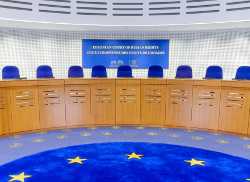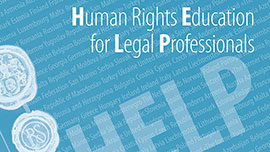Harmonisation of national case law and judicial practice

Member states’ judicial authorities have developed a wealth of different practices in response to that challenge. The Council of Europe through its Human Rights National Implementation Division is increasingly supporting such good practices and stimulates its member states to resolve problems which have been identified through the Court’s case law or otherwise. Some innovative mechanisms and tools have been tested to that effect by different member States: advisory opinions issued by high courts, special functions conferred to case law/human rights departments of higher courts, enhancing access to the case law through modern databases, creation of harmonisation panels, modern judicial training techniques on the European Convention on Human Rights and the Court’s case law, etc.
On-going projects
Azerbaijan
Georgia
Montenegro
Moldova
Serbia
Ukraine
Completed projects
Armenia
North Macedonia
Serbia
Turkey
Ukraine
_______________
* As of 12 February 2019, the official name of the country changed to North Macedonia.




